Si Steers takes a look at how Liverpool’s owners, FSG, are still suffering from the previous owners and mis-management at Anfield.

Since the sacking of Kenny Dalglish there have been some Liverpool fans that are questioning the direction the club is taking under Fenway Sports Group. They point to a number of incidents as proof that the owners are aiming for mediocrity, not success. There is a sense amongst some that FSG are in this for a quick profit.
Every single decision and move by the owners is now dissected into so much detail – it is difficult to know if the club is progressing or not. There is an understandable cynicism embedded deep in the traditionalist support: those that were the first to see through the greed of Hicks and Gillett and campaigned so hard to remove them have a right to be wary.
But the difficulty now is that cynicism is breeding the instinct of a section supporters – the experience the club went through under our previous owners cut deep at every level. The simple fact is that the direction the club is taking now – and the decisions that are being taken are open to interpretation. Some interpret those decisions with optimism, others with cynicism.
There are a number of key issues that the owners have been criticised for such as:
The stadium
A lot has been said about the stadium in recent weeks. It is absolute fact that Martin Broughton said it was a ‘condition of sale’ that a new stadium would be built. It is fair to say that after almost 24 months in situ, it is disappointing that the stadium solution hasn’t progressed. It is a fair criticism.
But there are factors that need to be considered. The stadium solution has to make economic sense for the club; whilst there had been a lot of work on designs and plans – there was a gaping hole in exploring the economic viability of a new stadium. FSG have taken the time to explore options – rather than rushing into a decision that comes with £150-200m of debt.
Recent indications suggest that despite a decade of being told otherwise – the club maybe close to finding a solution to stay at Anfield. If that is the long term stadium solution it will mean that the club can stay at its spiritual home.
What we do know is that FSG’s preferred option is to stay at Anfield – I am sure that is the preferred option of the majority of Liverpool fans. There has been progress made, but it is a complex project that requires multiple issues to be resolved.
Surely if the intent of the owners is to stay and develop Anfield – supporters can get behind that plan, with the understanding that progress will be slow, but the end game will be Anfield.
Sacking Dalglish
There are many Liverpool fans that believe the sacking of Dalglish was a bad decision. It is by far the most difficult and divisive decision the owners have made so far. There is an incredibly strong argument that Dalglish deserved another season. Sacking Dalglish was a nail in the coffin of the ‘Liverpool Way’ for a lot of traditionalist supporters.
Dalglish did progress the team, and he united the club. He gave us hope again. He saw us through one of the most turbulent periods in our history; and he gave us back our identity. Dalgish is an icon: one of the architects of the foundations on which the club is built.
But Dalglish was never FSG’s long term plan. His early impact in his caretaker role demanded that FSG give him an opportunity as the permanent manager. But FSG have always favoured a younger man at the helm – somebody that shares an ideology of progressive football and is comfortable operating in the modern game.
Whilst FSG have been criticised for sacking Dalglish – they also brought him back. They gave him the opportunity to take the club to Wembley and win a cup. Kenny Dalglish will always have unfinished business with Liverpool FC – but at the very least, Dalglish has written another chapter in his love affair with the club. Sacking Dalglish was always a risk of bringing him back.
The easy option for FSG would have been to keep Kenny on for another season – but they chose not to take the easy decision. FSG want to progress the club – they want to plan for long term success. That was the rationale for sacking Dalglish –it wasn’t a political decision, it was a long term footballing one.
With the appointment of Rodgers FSG haven’t brought in a ‘yes man’ in the mould of Hodgson; they have brought in a young, hungry, progressive manager that has a footballing ideology that fits into the cultural fabric of the club. If sacking Dalglish wasn’t a popular decision, bringing in Rodgers is a progressive one. Rodgers is a man with a strong mind – he looks like the right ‘fit’ for the club.
Time will tell if he is the right man for Liverpool – and if FSG have got the decision right.
They don’t have a clue about football
It is a fair observation that FSG don’t have any experience in football. Since they acquired the club they have been on a steep learning curve – and have been reliant on outside advisers to fill in the knowledge gap. This has led to inevitable mistakes.
The Suarez affair was hugely damaging and was an epic fail by the club. The owners have to take responsibility for that – and there can be little doubt that the restructuring of the club was partly influenced by that incident. It highlighted real failings in structure. But as with any failure – how you learn from it is the most important outcome.
The one thing FSG haven’t done is rush into decisions. They have taken time to understand and make informed choice. Rather than come into the club making brash promises they have taken time to try and understand the club and what it means to its supporters – they haven’t got everything right, but there is clear intent to try and run the club in a sensible and responsible way.
FSG have engaged some very credible football people to advise them – this is evident from the ideology that the club is pursuing under Rodgers. They may not understand the game in depth; but they have been advised by people who know how the game is progressing.
They have also attempted to engage with fans – with the supporters committee a direct link between fans and the club. The club’s principle owner and new communications director are both on Twitter; allowing direct interaction with supporters. How many other clubs have that?
Communications is something the club has been poor at in recent years; but in the short time that Jen Chang has been in situ, there has already been an improvement.
There is still far more to do – and incidents where things go wrong like the Dempsey article on NESN do not help credibility. But there doesn’t appear to be a desire to hide behind decisions: and that is a positive and progressive communications strategy.
Finances
FSG did acquire the club for a very good price – below market value. But the cost was still around £300m. FSG were one of a few bidders when the club was up for sale, but how many of those bidders were cash rich? There wasn’t a ‘sugar daddy’ style investor waiting in the wings – out of the interested parties at the time, FSG had the most credible offer – and had a track record of building success in Boston.
The most important factor is that FSG acquired the club with their own money. Unlike Hicks and Gillette (and the Glaziers) they have not put the debt on the club. This isn’t a leveraged buyout – FSG acquired the club with their own money.
This means that the clubs debt repayments have been reduced from over £20m a year to around £2m a year. In addition to the initial investment, the most recent accounts show that FSG have written off £35m on failed stadium plans that were an ‘asset’ on the books from the previous regime.
There may well have been more interested if the club had gone into administration in 2010; but it was FSG that committed and prevented that scenario. Saving the club is probably too strong a statement – but they did take a risk when the club had few other options.
In addition to the £35m stadium debt – FSG also inherited a number of ‘bad contracts’ that are still influencing transfer policy.
Transfer policy
Under Comolli, the club made some poor decisions in the market. Not in terms of players or ability so much, but in terms of value. Whilst the net spend was only around £45m – we did over pay on a number of signings.
FSG have swiftly identified that we didn’t source value under Comolli and have moved to correct. There is now a more collaborative approach to transfer policy; and negotiation is the responsibility of the MD – who is the right person at the club to source value.
Despite speculation that the club has to ‘sell to buy’ this summer, that doesn’t tell the entire story of our transfer strategy. Transfer fees are only part of the policy; the more critical part of any transfer is how they affect your wage bill.
In 2011 Liverpool’s wage bill was running at 63% of total revenue. We were paying Champions League wages despite not being in the CL. With the departure of Kuyt and Maxi our wage bill will have reduced – but the return of Cole and Aquilani mitigates that benefit. Cole and Aquilani would both be surplus to requirement if we could move them on – but with a combined wage of £170k a week moving them on is impossible.
FSG have made it clear that they want to reduce the wage bill and bring the ratio close to 50% of total revenue. But that it difficult to achieve when you have the legacy of ‘bad contracts’ and players you cannot move on.
This is the difficulty for Rodgers this summer –he will have to build Cole and Aquilani into his plans as the club cannot afford to pay £170k a week for two players to be surplus. That means that to bring in new players in certain positions, Rodgers will need to manage his squad and move on players that he may want to keep – but will need to sacrifice to find an exact fit into his style and formation.
I expect that if we could move on Cole and Aquilani, moving Carroll on would be a remote option. But if Rodgers has to make room in the squad and on the wage bill – he has to take ruthless decisions.
I would be surprised if it was inability to pay fees that was an issue this summer; but more to do with managing his squad and being constrained by who he can move on and who he is stuck with.
FSG have made it clear that they want to pursue a policy of bringing in younger players on lower wages; rewarding as player develop and contribute to the team. But it will take time for that policy to bear fruit; and this summer there is still the legacy of our previous owners influencing what we do in the market.
A lot of supporters talk about FSG ‘digging deep’ – but in reality that isn’t how they will run the club. They have been very transparent that they want the club to be self-sufficient; but squad management and the wage bill will also influence what we do – it isn’t just about the transfer fees.
We can and will be competitive in the transfer market – but it will be at a sensible and pragmatic pace with a focus on developing the stars of the future.
I still expect to see 4-5 players in this summer – but it is important to look beyond the ‘profile’ and make a judgement on how they fit into the ‘system’.
Talk of sell to buy was where we were under Hicks and Gillett when we were paying £20m a year in interest – we are growing revenue under FSG and have little debt, so there is no comparison. But there is the legacy of a wage bill that needs to be reduced – so that is perhaps a driver behind policy rather than the club being ‘skint’.
We are progressing
Every single one of those factors is open to interpretation. But I don’t think you can draw a conclusion that FSG are ‘bad owners’ or ‘cowboys’. They have made mistakes, they are on a learning curve, but it is important to look at intentions.
I think they have done enough to prove the intention is good – as owners they have to be allowed the freedom to make decisions. Not everybody will agree with every decision – but if a decision hints at attempting to move the club forward it can be understood.
Ultimately it comes down to what do supporters want from owners? We may look at envy at City and Chelsea’s spending power – but both of those clubs have no soul. And as Ian Ayre said recently the solution at those clubs isn’t the solution for football.
What Liverpool has with FSG are owners that will build the club at a sensible and pragmatic pace – it won’t be built on debt, it will be built on sustainability and growth. That does mean that a compromise is needed – if we want long term stability and success, it won’t be instant.
I believe that a good relationship with our owners is important to our future. I’d like to think that one of the options when FSG decide to sell is a fan ownership model – in a similar structure to Barcelona. Those options will be easier to explore if relations stay strong.
FSG haven’t got everything right so far, they are not perfect. But they are trying to progress the club – there is a plan that supporters can get behind.
I want the owners to succeed as I want the club to succeed. We all share the same goal. I accept they will make mistakes on the way – but it is how they react that matters.
All signs point to the owners being in it for the long haul – success on the pitch will determine the goals of FSG as well.
I hope that this season will see a transition from cynicism to optimism so the club moves forward as one.







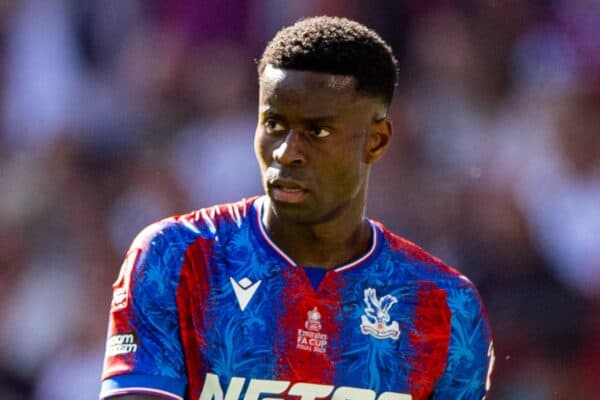

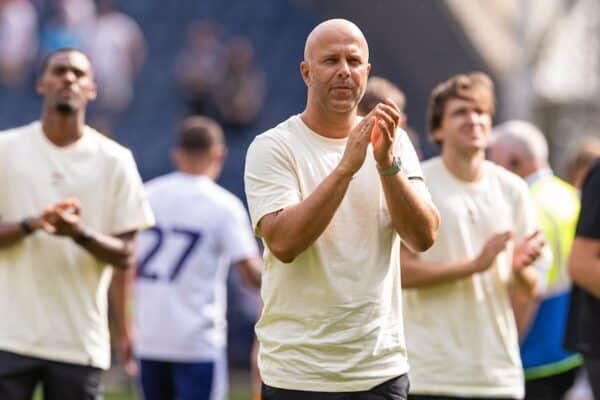
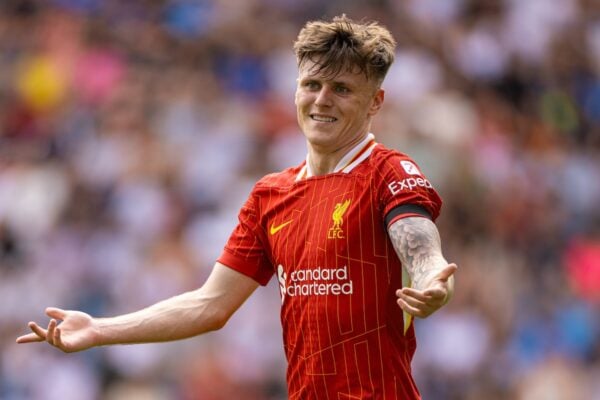
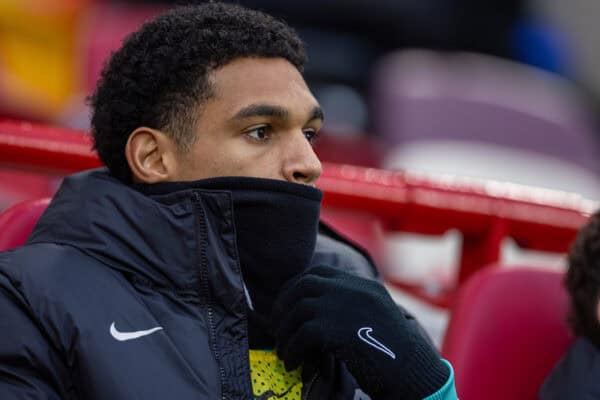
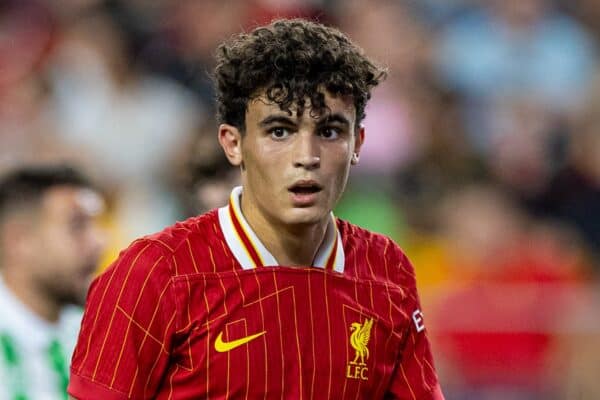
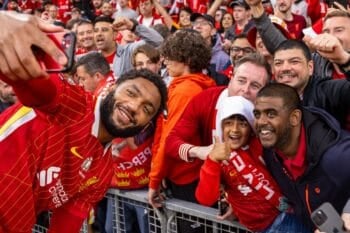


Fan Comments